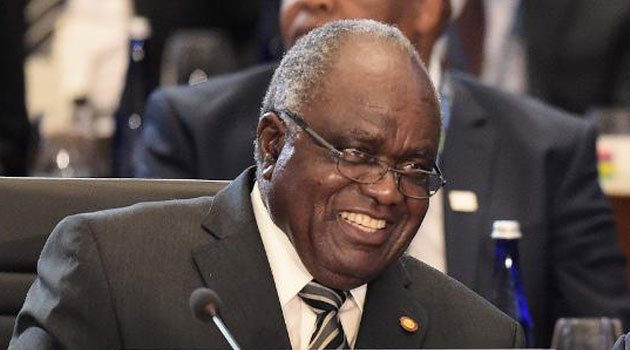Kenya’s higher education sector is teetering on the edge. In a shocking revelation, the Head of Public Service, Felix Koskei, has confirmed that 23 public universities are technically insolvent.
In a scathing op-ed, he warned civil servants and university administrators that the era of poor leadership, financial mismanagement, and political interference must end.
Citing ongoing forensic audits, Koskei described the state of these institutions as dire, with some operating in blatant defiance of lawful authority.
The government now demands urgent reforms or face collapse. With students’ futures at risk, this exposé highlights how deep the rot runs in Kenya’s public universities.

Insolvent Public Universities Threaten Kenya’s Higher Education Future
Felix Koskei has pulled back the curtain on what many suspected but few dared to say aloud: 23 public universities in Kenya are technically insolvent. This alarming state of affairs has raised concerns not only about the future of higher education but also about the misuse of public funds and unchecked institutional rot.
According to Koskei, these institutions were built to be centres of innovation, national progress, and academic excellence. Instead, many have turned into hollow shells, weighed down by dysfunction, financial recklessness, and mismanagement.
He pointed to multiple cases of corruption, bloated wage bills, and unsustainable debts. Koskei warned that if this trend continues, Kenya risks losing key pillars of its intellectual and economic development.
Forensic audits are underway to uncover the full scale of misappropriation. Koskei insisted that revenue diversification, professional oversight of income-generating units, and real-time financial reporting are not optional—they are urgent necessities.
The crisis is not theoretical. Institutions like the Technical University of Kenya (TUK), Moi University, and even the prestigious University of Nairobi are among those facing serious governance issues, financial shortfalls, or leadership wrangles. TUK, in particular, has been declared officially insolvent, putting the spotlight on just how fragile the situation is.
Koskei noted that public universities cannot operate as personal empires. He emphasized that leadership succession must be based on merit and institutional strategy—not tribal politics or backdoor deals. Failure to address these issues will only deepen the current crisis.

Universities Ordered to Reform or Collapse
Koskei’s message to vice chancellors and university councils was clear: fix the institutions or face accountability.
He directed them to reclaim governance in full and re-establish the line between administrative leadership and council oversight. The confusion over who holds authority has led to duplication of roles, inaction, and institutional decay.
Performance contracts, long ignored or only followed on paper, must now be fully enforced. Vice chancellors will be held responsible for meeting clear targets. University councils must step away from political favoritism and begin practicing professional stewardship.
Leadership succession is one of the biggest pitfalls. Koskei cited past cases where politically motivated appointments eroded strong institutions. Some former academic giants have fallen purely due to internal sabotage driven by ethnic alliances and short-term thinking.
“Leadership planning is not a luxury—it is a strategic obligation,” he wrote, urging the government to root out favoritism and replace it with systems based on competence and national interest.
He added that civil servants must prepare for a system that no longer tolerates impunity. The culture of corruption, wastage, and disobedience to government policy has no place in Kenya’s public service, including universities.
Technical Institutions Also Under Scrutiny
Koskei’s warning didn’t stop at universities. He turned attention to basic and technical training institutions, calling them the “foundation” of the entire education sector.
He urged a total overhaul of outdated curricula and a shift towards competency-based education that reflects the needs of Kenya’s industries. He stressed the importance of integrating practical skills, building industry partnerships, and ensuring students graduate with employable competencies.
Koskei also called for gender inclusion in technical disciplines, better support for students with disabilities, and tailoring training programs to regional needs. Without such reforms, he warned, Kenya will continue to churn out graduates who are unprepared for real-world demands.
The government’s broader concern is not just education for education’s sake, but education that leads to productivity, innovation, and growth.











































